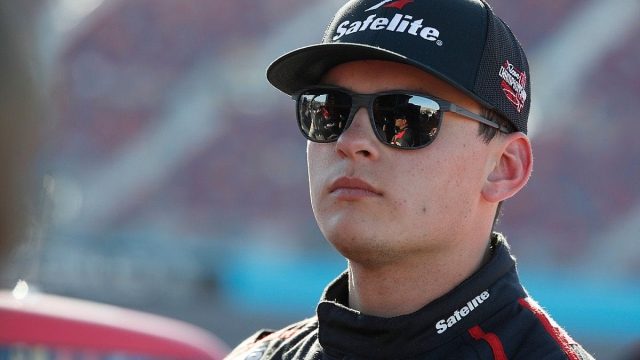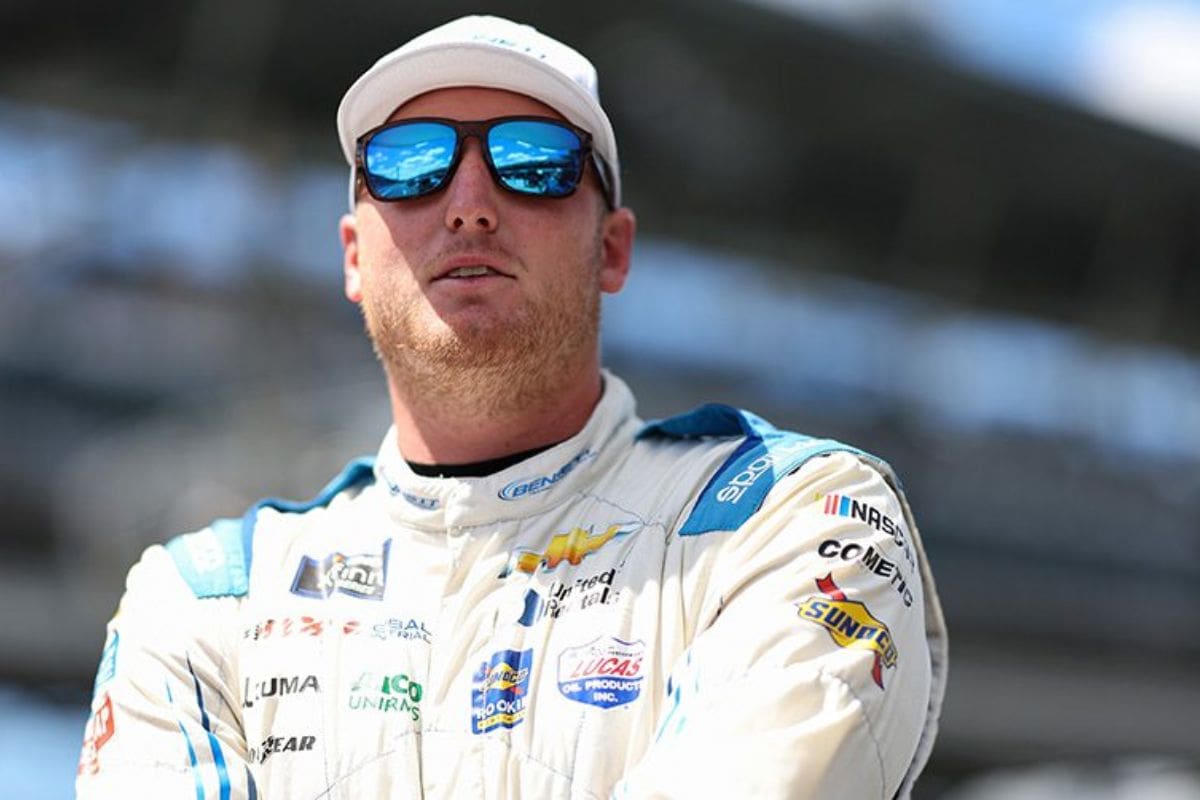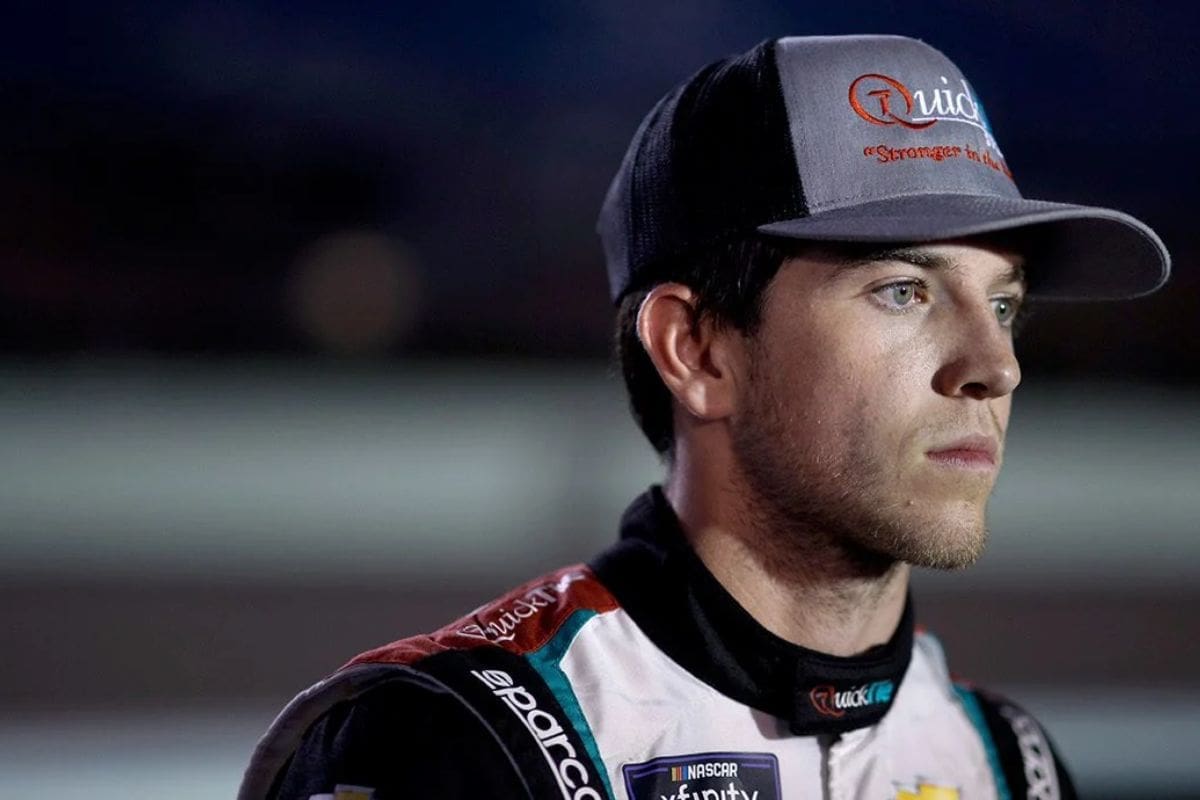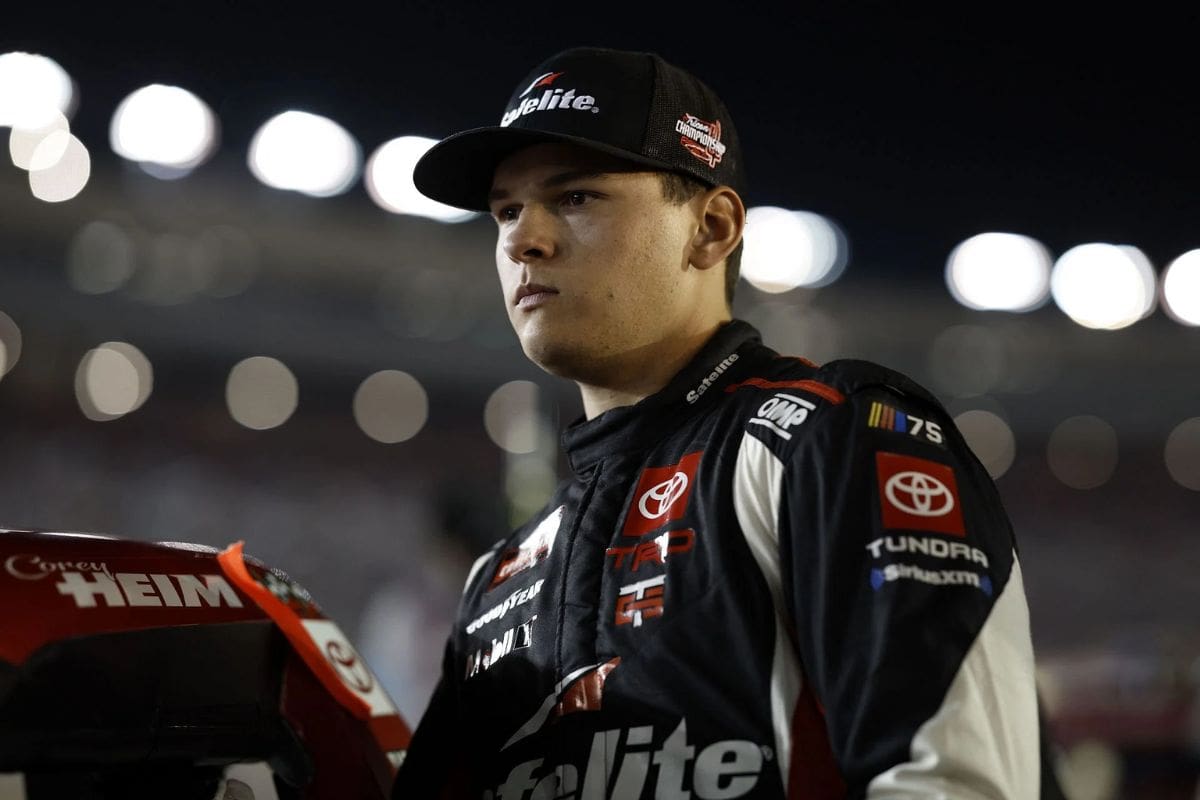Corey Heim’s Controversial Push Sparks Drama: Corey Heim‘s recent tactical choice during the closing laps of the Atlanta race has stirred a complex debate within the NASCAR community, particularly as Austin Hill secured a pivotal victory. By opting not to support his teammate, Chandler Smith, Heim’s actions have ignited discussions surrounding the balance between individual ambition and collective team strategy. Critics argue that his decision undermined team dynamics, while Heim maintains it was a calculated move for mutual benefit. This incident not only raises questions about the ethics of teamwork in racing but also sets the stage for potential consequence within Toyota Racing Development. What might this mean for future collaborations?
Key Highlights
- Austin Hill achieved his third win of the season at Atlanta, showing skill amidst chaotic racing conditions.
- Corey Heim faced backlash for not aiding teammate Chandler Smith, impacting the race’s final laps.
- Heim defended his choice as tactical, igniting debate on individual ambition versus teamwork in NASCAR.
- Smith expressed frustration over missed opportunities, questioning his decisions during the race that could have led to victory.
- The incident raised concerns about team dynamics and communication protocols within Toyota Racing Development moving forward.
Austin Hill’s Victory at Atlanta
As the dust settled from a tumultuous race at Atlanta, Austin Hill emerged victorious, securing his third win of the season in a performance that highlighted not only his skill but also the volatility of the competition. Hill’s triumph came amid a backdrop of chaos, with major contenders like Justin Allgaier and Cole Custer succumbing to a noteworthy wreck that dramatically reshaped the race landscape.
Hill’s consistency and tactical acumen were on full display as he navigated the treacherous conditions, demonstrating an astute understanding of both his vehicle and the track dynamics. The Atlanta circuit, known for its unique blend of high-speed straights and challenging turns, often tests drivers to their limits. Hill’s ability to maintain composure in the face of adversity set him apart, allowing him to capitalize on the misfortunes of others and emerge as the clear favorite.
However, Hill’s victory is not merely a reflection of his driving skill but also a proof of the team dynamics at Richard Childress Racing. The collective effort behind the scenes—meticulous preparation, tactical pit stops, and timely decision-making—underscore the multifaceted nature of achieving success in NASCAR.
In an environment where every lap can lead to unexpected outcomes, Hill’s performance at Atlanta reinforces the notion that resilience and adaptability are vital. As the season progresses, his ability to build on this momentum will be essential, not just for individual honors but also for positioning within the competitive hierarchy of the series.
Corey Heim’s Controversial Move
Although teamwork is often heralded as a cornerstone of success in NASCAR, Corey Heim’s controversial decision to withhold assistance from fellow Toyota driver Chandler Smith during the closing laps of the Atlanta race sparked considerable debate among fans and analysts alike.
With just two laps remaining, Smith was poised to capitalize on the momentum of the outside lane, almost overtaking Austin Hill. However, Heim, positioned behind Smith, chose to push Hill instead, leaving Smith without the crucial support to contend for the win.
Heim’s choice raises critical questions about loyalty and tactics within the competitive framework of NASCAR. In his post-race interview, Heim justified his actions by asserting that aiding Smith would not have been beneficial for either driver, positioning Hill as the strongest competitor that day.
“Yeah, I mean, at the end of the day, the move was going to be made on the straightaways and not the middle or the corner. There’s no point going to the bottom or the middle, or the corner and trying to skip out the leader. Best car all day, the 21 so wasn’t in my best interest, wasn’t in his best interest either.” – Heim
Corey Heim is P5. Was Austin Hill's block fair or foul?
"I think at the end of the day I'd have done the same thing," he tells @WendyVenturini. "I can be mad all I want but if I was in the same spot I'd have done the same thing."
— PRN (@PRNlive) September 7, 2024
This rationale, while tactical, has led to a backlash from fans who view racing as a collaborative endeavor. They argue that such a move undermines the spirit of teamwork that is vital in a sport where drafting and alliances can dictate outcomes.
The consequences of Heim’s decision extend beyond the immediate race results. It introduces a narrative about individual ambition versus collective effort, challenging the established norms of driver relationships within teams.
While Heim’s perspective highlights self-interest in a competitive landscape, it also risks fracturing the unity that can propel a team’s success. As discussions continue, the implications of this controversial move will likely resonate throughout the NASCAR community, prompting reflection on the true essence of racing fellowship.
Repercussions for Heim’s Decision
Corey Heim’s controversial choice to prioritize Austin Hill over Chandler Smith has ignited a complex dialogue regarding the potential consequences of his actions within the Toyota Racing Development (TRD) team. The decision, while seemingly calculated in the heat of competition, raises questions about team dynamics, loyalty, and the long-term implications for Heim’s standing among his peers.
Despite his nonchalance regarding the potential repercussions during the upcoming TRD team meeting—stating, “I’ll have the discussion on when to make the move, but maybe that’s about it”—the incident is unlikely to dissipate quietly.
While Hill has celebrated victory, Heim’s decision to favor one teammate over another is a double-edged sword. Such actions can create rifts, sowing seeds of discord among drivers who are ultimately competing for the same goal: success within the team framework.
Moreover, the fallout could extend beyond interpersonal relationships. Heim’s move may influence future tactical discussions and decisions made by team management, who must weigh the benefits of aggressive racing against the imperative of team cohesion.
The examination surrounding his actions may lead to more stringent communication protocols during races, ensuring that the team operates with a unified vision.
The full impact of this decision may unfold in the weeks to come, revealing the true nature of teamwork in motorsport.
Chandler Smith’s Frustration at Atlanta
Frustration was palpable for Chandler Smith following the Atlanta race, where yet another opportunity for victory slipped through his fingers. Having already secured his place in the playoffs with wins at Richmond and Phoenix, Smith’s disappointment was compounded by a sense of déjà vu. This race echoed his earlier heartbreak in February, where a similar scenario left him yearning for more as he crossed the finish line in third place, trailing behind Austin Hill.
Despite executing the right strategies throughout the race, Smith found himself once again thwarted at his home track, the 1.540-mile quad-oval. His emotions ran high as he reflected on the pivotal moments that led to his downfall.
“I got clear out of the restart zone and could’ve gone bottom and hung him up to be the leader in the top lane. I didn’t, and I stayed up top with my Toyota teammate and ultimately gave up the lead doing that,” he lamented, revealing the internal conflict between teamwork and individual ambition.
“I feel like I’ve been robbed from three Atlanta wins now, unfortunately, in my career. I’m kind of speechless, honestly. There’s a lot of different things I could’ve done. I could’ve been more selfish, and when I got clear, and went to the bottom and controlled the race for sure. I was trying to be a good teammate, and that didn’t pay off for me.” – Smith
Smith’s decision to prioritize his relationship with Hill over seizing the lead may have been born out of friendship but proved detrimental in his quest for victory. This race not only serves as a reminder of the unpredictable nature of racing but also highlights the delicate balance between strategy and alliance.
As he grapples with this missed chance, the question looms: will Smith learn from this experience and harness it for future races, or will frustration continue to define his season?
Austin Hill’s Success and the Playoff Picture
Austin Hill’s recent victory at Atlanta not only marked his fourth win at this challenging track but also considerably reshaped the playoff landscape in the Xfinity Series. This triumph, amidst a flurry of late-race drama, emphasized Hill’s tenacity as he fended off fierce competition from Chandler Smith and Corey Heim. Despite battling suboptimal handling in his Bennett Chevrolet, Hill exhibited remarkable resolve, ultimately running Heim into the wall to secure his lead.
“Our Bennett Chevrolet wasn’t handling great all day. It had plenty of speed. The handle on it was tough all day. We had to dig deep for that one. The 81 (Chandler Smith) got into (turn) 3 and had me jacked up. He’s doing what he had to do to win. (I’m) very surprised that the 26 pushed me there and didn’t go with a Toyota.” – Hill
The implications of Hill’s win extend beyond personal honors; they reverberate through the playoff standings. With two races remaining, the quest for playoff berths is intensifying. Ryan Sieg’s disappointing DNF pushed him below the cutoff, illustrating the precarious nature of the standings. Meanwhile, contenders such as A.J. Allmendinger, Sheldon Creed, Sammy Smith, and Parker Kligerman are acutely aware that each point could be the difference between contention and elimination.
Hill’s success also invites examination of tactical alliances in the sport. His astonishment at Heim’s unexpected push raises questions about team dynamics and the broader implications of driver relationships, particularly as they pertain to Toyota’s competitive prospects.
As the Xfinity Series approaches its playoff threshold, the interplay between individual ambition and collaborative strategy will prove critical. Hill’s victory at Atlanta has not only strengthened his own playoff credentials but has also injected a renewed sense of urgency among his rivals, setting the stage for an electrifying finale to the regular season.
News in Brief: Corey Heim’s Controversial Push Sparks Drama
The incident involving Corey Heim’s decision to withhold support from Chandler Smith emphasizes the complex interplay between individual ambition and collective strategy within NASCAR. This controversy not only affected the race outcomes but also highlighted the necessity for improved communication protocols among team members in Toyota Racing Development. As the competitive landscape evolves, the implications of such decisions will likely resonate beyond this single race, influencing team dynamics and strategies in future events.
ALSO READ: Corey Heim and Christian Eckes’ Crash in TSport 200: On-Track Tensions Escalate



